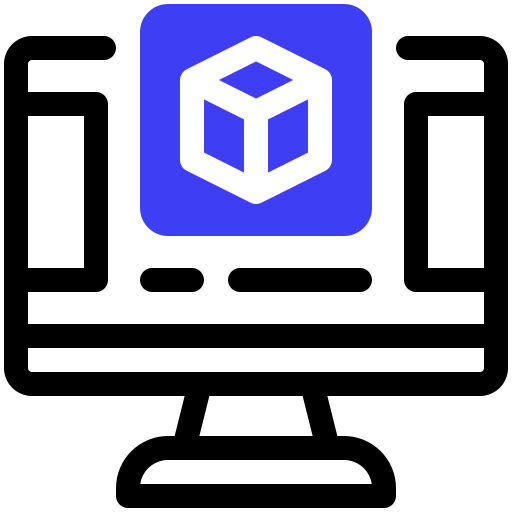Modular programming
A general programming concept in which developers divide software functions into independent parts.

Modular programming services
Let our AI developers achieve more with less. Give us the ability to bring the latest AI innovations into production faster, with higher productivity and lower costs. And all this without having to rewrite your stack.
Reusable code
Divide large software into many independent modules and make each class/method do only one specific task. Modularity makes code easier to understand and more maintainable. This makes it easy to reuse methods or functions in a program and reduces the need for re-writing.
Ease of maintenance
Breaking the program into smaller subroutines makes it easier to manage. Individual modules are easier to test, implement, or design. These individual modules can then be used to develop the entire program.
Easier to debug
Debugging is one of the fundamental parts of programming and also one of the most annoying parts of development, when debugging large programs how and when any errors occur can become a mystery. This may take up a lot of your precious time while it goes through lines of code to figure out where the error occurred, but then each individual task has its own separate section of code. So, if there is a problem in a specific function, the programmer knows where to look and can manage less of the code.
Collaboration
Another benefit of this modular approach is that it allows for collaborative programming. Instead of assigning a lot of work to one programmer, you can divide it among a large team of programmers. Each programmer can be assigned a specific task to perform as part of an overall software application. Then, eventually, all the various work of programmers is compiled to create a program. This helps speed up the work.
Creativeium provides the best opportunities for its clients
Our comprehensive solutions are designed to improve productivity, maximize profitability and drive innovation.
Calling a function
A way to call a function from another part of the program. This is similar to sending a request to a subroutine to perform a specific task. When a function is called, program execution jumps to the function code, executes it, and then returns to the calling code. Function calls help break a program into smaller, more manageable tasks, making it easier to write, understand, and maintain.
Function Definition
A block of code that defines what a function does when it is called. It is like a diagram or recipe for a function, describing the input arguments it takes, the processing it does, and the output values it returns. Function definitions help break a program into smaller, more manageable tasks, making it easier to write, understand, and maintain. They are usually placed at the beginning of the program and can be called from different parts of the program as needed.
Function prototype
A function declaration that specifies its name, input arguments, and return type. It is like a preview or trailer of a function, giving the compiler information about the function before it is defined in the program. Function prototypes help ensure that functions are called with the correct number and types of arguments and that the return value is used as intended. They are usually placed at the beginning of the program before function definitions and help organize and optimize the code.
ID name
A label given to a variable, function, or other program element to identify and refer to it in code. This is similar to a name tag that helps differentiate one element from another. Identifier names should be meaningful, clear, and concise, reflecting the purpose and function of the element they represent. It is important to choose identifier names carefully to avoid confusion and program errors. Consistent and descriptive identifier names make the program easier to read, understand, and maintain.
Modularity
The process of breaking a program into smaller, more manageable modules or functions. It's like breaking a complex task into smaller, more manageable subtasks. Modularity helps organize code, making it easier to write, understand, and maintain. This allows different parts of the program to be developed independently and tested separately, reducing the risk of errors. Modularity also makes code easier to reuse because modules can be used across different programs or combined to create new functionality.
New projects
Our comprehensive solutions are designed to improve productivity, maximize profitability and drive innovation.



